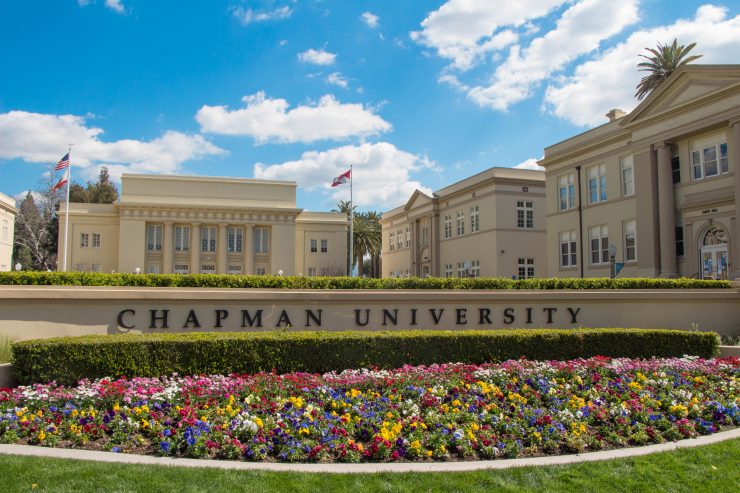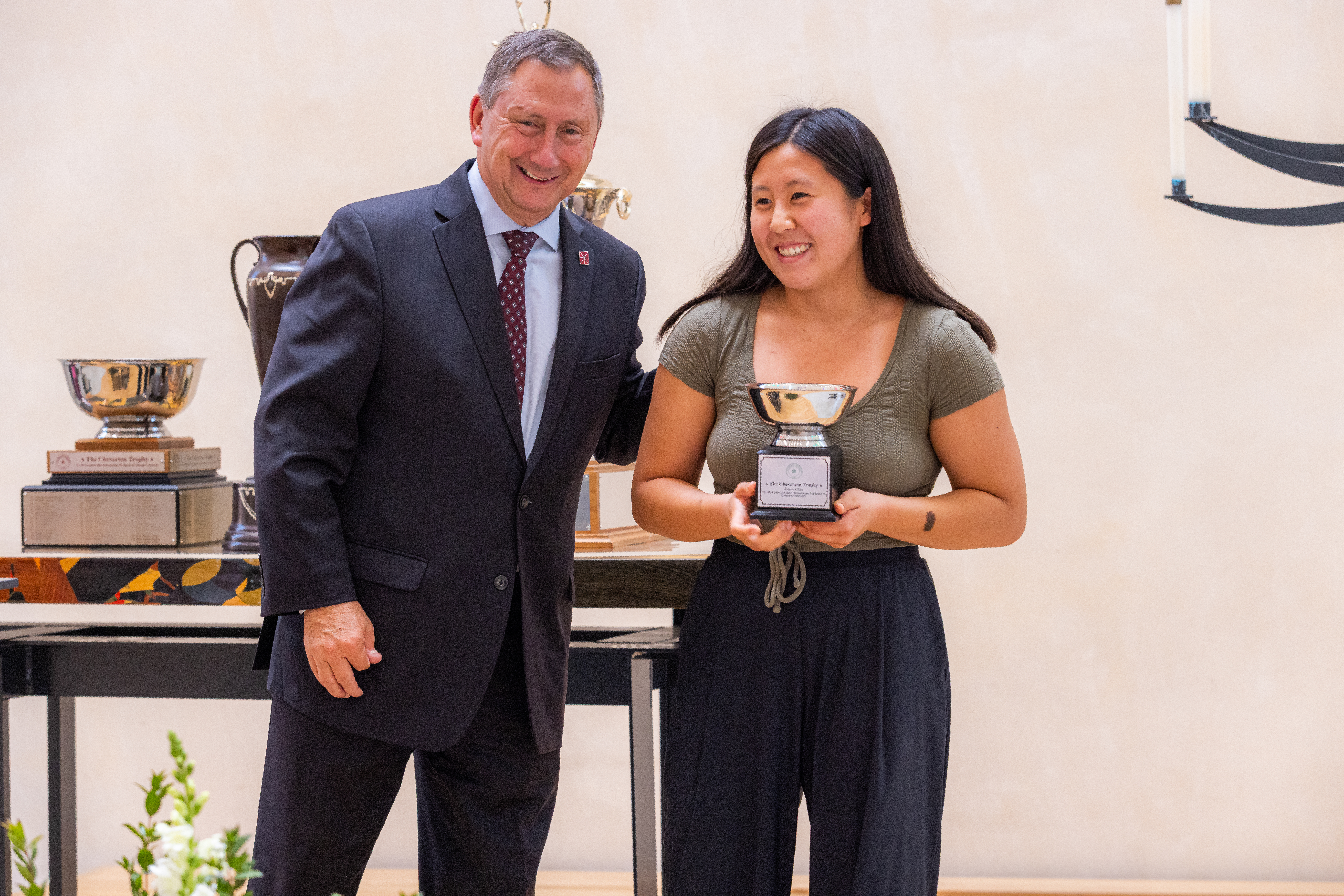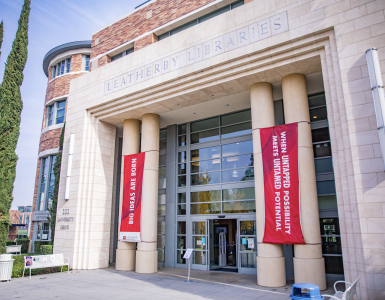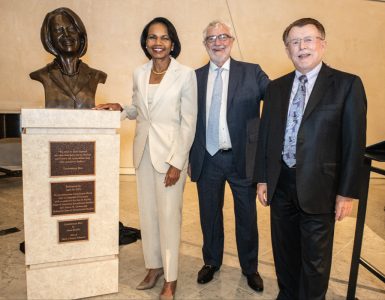The Office of Research announced the following research grants awarded to Chapman University faculty in September 2023.
$106,449 – National Science Foundation
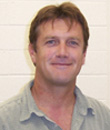 Warren De Bruyn, professor of chemistry. Schmid College of Science and Technology.
Warren De Bruyn, professor of chemistry. Schmid College of Science and Technology.
Collaborative Research: RUI – Cycling of Dissolved Organic Matter in Blue Carbon Ecosystems. “This study will facilitate better predictions of the effects of climate change and anthropogenic influences on ecosystems and the biogeochemical cycling of carbon at the terrestrial-aquatic interface. The information obtained from this project will be useful in managing the coastal zone and potentially restoring wetlands to mitigate climate change affects.”
$15,568 – National Oceanic and Atmospheric Administration (via subaward from University Corporation for Atmospheric Research)
 Ann (Christine) Gordon, associate professor of political science. Wilkinson College of Arts, Humanities, and Social Sciences.
Ann (Christine) Gordon, associate professor of political science. Wilkinson College of Arts, Humanities, and Social Sciences.
Crafting Effective Public Safety Messages for Fire Weather Watches and Warnings with Maps. “This research addresses the urgent need for effective wildfire communications which can enhance the public’s preparedness and response. In addition to its official Watch and Warning products, the National Weather Service (NWS) produces informative messaging and graphics for a variety of Internet pages, social media and notifications for its partners. This project aims to investigate the public’s understanding of NWS messaging and to develop more effective messages that can help save lives and protect livelihoods.”
$100,000 – Office of Naval Research
 Armen Gulian, professor of physics. Schmid College of Science and Technology.
Armen Gulian, professor of physics. Schmid College of Science and Technology.
Development of Discrete Elements for Superconducting Electronics (Including SQUIDs) for Room-temperature Operation Enabled by LK99 Thin Films. “We plan to explore superconductivity in the material LK-99 in thin film form using our laboratory deposition and diagnostic facilities. As soon as these films will superconduct at room-temperature, weakly-coupled bridges and more sophisticated discrete superconducting electronics elements will be fabricated and tested.”
$2,200,000 – U.S. Department of Education
 Hesham El-Askary, professor of computational and data science. Schmid College of Science and Technology.
Hesham El-Askary, professor of computational and data science. Schmid College of Science and Technology.
Promoting the Integration of Earth Observations for Sustainable Development Goals. “This project aims to study natural hazards and the food insecurity that arise due to them, atmospheric events, and climate change-related issues with special emphasis on problems related to the study of desertification, wildfires, and aerosols affecting renewable energy and marine environment. The project team will coordinate and integrate state-of-the-art Earth Observation (EO) activities globally to develop links and initiatives toward achieving the sustainable development goals (SDGs).”
$299,247 – National Science Foundation
 Dr. Zed Sehyr, assistant professor of communication sciences and disorders. Crean College of Health and Behavioral Sciences.
Dr. Zed Sehyr, assistant professor of communication sciences and disorders. Crean College of Health and Behavioral Sciences.
Quantifying Sign Reduction in American Sign Language Using Human Pose Estimation. “The project aims to explore the phenomenon of lexically conditioned phonetic variation in American Sign Language (ASL). By examining the interactions between the underlying and surface properties of ASL signs, they hope to gain insights into how the linguistic structure of ASL affects sign articulation. By understanding the phonetic properties of signs, it may be possible to develop recognition technologies for ASL such as Siri or Alexa which have traditionally excluded the signing community.”
$855,000 – National Heart, Lung, and Blood Institute (via subaward from prime awardee University of South Alabama)
 Dr. Rennolds Ostrom, professor and interim dean. School of Pharmacy.
Dr. Rennolds Ostrom, professor and interim dean. School of Pharmacy.
Compartmentalized Signaling and Crosstalk in Airway Myocytes. “In the current application we will build significantly on our recent findings to establish a deep mechanistic understanding of how airway smooth muscle cells localize cAMP signals to enhance signaling efficacy.”
$2,893,970 – National Heart, Lung, and Blood Institute
 Dr. Brooke Jenkins, assistant professor of psychology. Crean College of Health and Behavioral Sciences.
Dr. Brooke Jenkins, assistant professor of psychology. Crean College of Health and Behavioral Sciences.
Positive Affect and Pediatric Asthma: An Innovative Positive Psychology Model to Improve Asthma Management and Health. “Innovative approaches to improving adherence to preventive medication and decreasing stress are needed to promote better asthma health. The present proposal will test the associations between momentary-positive-affect and asthma health, as well as the hypothesized mechanisms behind this association, using a longitudinal burst design with momentary assessment of adolescents with moderate to severe persistent asthma. The work in this application lays the foundation for the development of adaptive behavioral interventions to better treat asthma in adolescents.”
